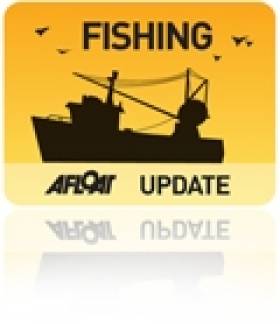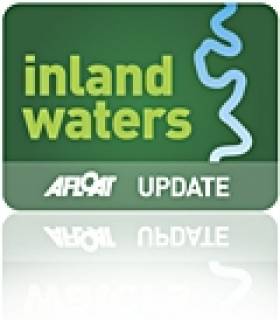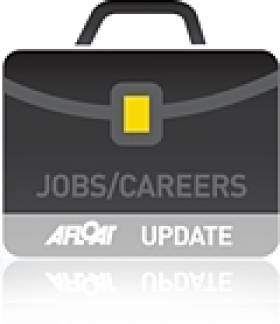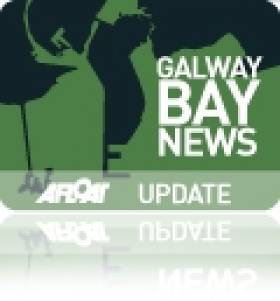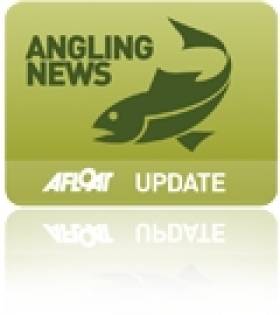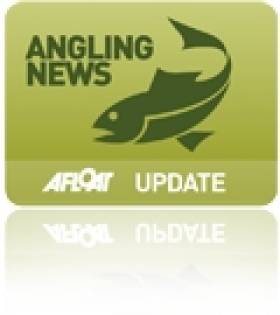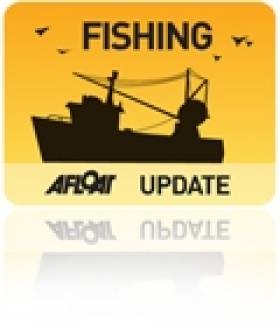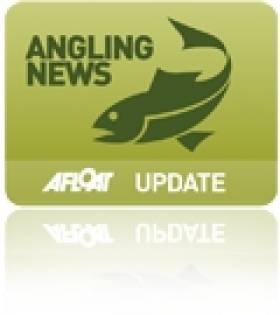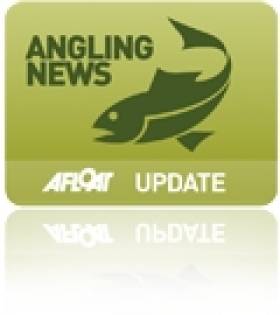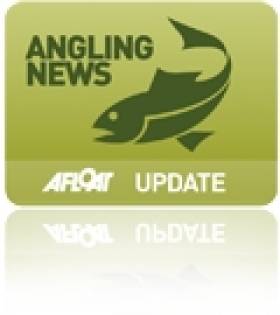Displaying items by tag: IFI
#Fishing - Inland Fisheries Ireland (IFI) is inviting applications for Commercial Salmon Fishing (Draft Net & Snap Net) Licences for 2013.
The new licences are in accordance with the Control of Fishing for Salmon Order 2013, and come in the wake of the new Draft Nets and Snap Nets Bye-Law which sets out the relevant details for the current commercial fishing season.
An application form can be found within the downloadable PDF of said order, or may be obtained from your local IFI office. The closing date for receipt of completed applications is 29 March 2013. Late submissions cannot be accepted.
IFI Addresses EU Parliament on Invasive Alien Species
#InvasiveSpecies - Dr Joe Caffrey of Inland Fisheries Ireland (IFI) presented Ireland’s position on the threat of invasive alien species to Ireland's waterways at a high-level debate at the European Parliament in Brussels on 21 February last.
Discussions centred on the issue of invasive alien species in Europe and the development of an EU policy instrument to tackle the threats.
The debate, titled ’Biodiversity’s Ticking Time Bomb: Understanding and Addressing the Problem of Invasive Species in Europe’, was organised via the International Union for Conservation of Nature (IUCN) and Birdlife, with the support of the European Habitats Forum.
Dr Caffrey was one of nine speakers who presented to the large gathering where he addressed the theme ‘The challenges and opportunities of member states in implementing EU legal measures: the example of Ireland’.
The talks were followed by a highly interactive panel discussion during which the pros and cons of a dedicated EU legislative instrument on invasive alien marine species were debated. The results of EU deliberations on this theme will emerge in the coming months when a consultation document will be released.
In the meantime, IFI and EIFAAC will host the FINS (Freshwater Invasives – Networking for Strategy) Conference in Galway on 9-11 April which will address key topics relating to freshwater invasive species and harmful aquatic pathogens.
The conference is attracting a large international audience of policy makers in this area. The primary objective of the conference is to provide a forum where international scientists, policy makers and stakeholders will address designated themes with a view to informing management and policy development in this increasingly important area.
Minister Fergus O'Dowd, who recently launched the world's first angling kit to combat invasive species, said of the conference: “Invasive species cause some €12.5 billion worth of damage each year in the European Union alone and are a serious threat to native biodiversity across the continent. IFI is keenly aware of the threat to our own natural resources, particularly to our economy, health and recreational activities.
“I want to congratulate IFI on the lead it has taken in its scientific, practical and proactive approach to this issue, working with stakeholders on the front line to ensure that biosecurity awareness is paramount. They are also bringing Ireland’s first-hand experience to Europe and adding to the positive debate on an EU wide cooperative framework to safeguard our natural resources through legislation and knowledge transfer."
The FINS conference will be held at the Galway Bay Hotel and Conference Centre in Salthill, Galway, Ireland from 9-11 April 2013. For more details visit the FINS Conference website.
IFI Recruiting Seasonal Fishery Officers
#Jobs - Inland Fisheries Ireland (IFI) is currently seeking to recruit a number of staff as fishery officers nationally for periods of up to a maximum of six months' duration during 2013 and will shortly commence a process to fill these positions. Interviews are expected to take place from 9-11 April 2013.
Fishery officers will be primarily concerned with the implementation and enforcement of the provision of the Fisheries Acts, Water Pollution Acts and other relevant statutory provisions.
The successful candidates are required to provide, in co-operation with other fisheries staff, comprehensive conservation and protection services, inland and at sea - as well as comprehensive improvement, and development and fisheries management support services – within any part of a fisheries district and/or any other area assigned within one or more fisheries districts.
A number of positions will be concerned with assisting either directly or indirectly in fisheries related research projects.
Salary will be at the first point of the fishery officer scale (€22,349) plus an unsocial hours allowance paid at either 50% or 100% relative to the number of unsocial hours worked.
Applications (a cover letter and up-to-date CV) should be posted for the attention of Norma Brophy, Inland Fisheries Ireland, Swords Business Campus, Swords, Co Dublin or via email to [email protected] by close of business on Monday 18 March 2013. Please note that late applications will not be processed. Enquiries to Norma Brophy at 01 884 2662.
Protest in Galway Over Fish Farm Plans This Weekend
#Fishfarm - Galway Bay FM reports that a major protest is set to take place in Galway this weekend against the proposed deep sea fish farm off the Aran Islands.
Galway Bay Against Salmon Cages is organising the demonstration from Eyre Square on Saturday 2 March at noon in opposition to the 500-hectare organic salmon farm proposed by Bord Iascaigh Mhara (BIM).
The facility, to be located off Inis Oírr in Galway Bay, would be the largest of its kind in Europe and would double the State's production rate of organic salmon, cited by BIM as Ireland's leading organic food export.
However, the scheme has been facing strong opposition from fisheries groups and local anglers citing the potential environmental impact on wild salmon numbers and the threat to tourism in the area.
Inland Fisheries Ireland is among those bodies that have expressed concern over the fish farm plans, citing research on the effect of sea lice emanating from aquaculture facilities on the mortality rate of wild Atlantic salmon.
BIM responded to news of the protest by stating such action may be unnecessary due to the appeal mechanism available in the State's decision process.
New Angling Guides and Salmon Bait Restrictions
#Angling - Inland Fisheries Ireland has recently added two new guides to its list of resources for anglers fishing in Ireland.
The West of Ireland Sea Angling Guide covers the region from Westport, in Clew Bay, south to the rocky headlands of North Clare, including Galway Bay, Connemara, Killary, Louisburgh, Clew Bay, and the offshore islands of Inisbofin, Inisturk and the Aran Islands.
The guide is in no way comprehensive, and the list of marks and venues is just a sample of what is available across the region's waterways. There are literally hundreds of shore marks in the region that have rarely, if ever, been fished, but the potential waiting to be explored is immense. Getting off the beaten path and trying a new mark may produce the fish of a lifetime.
In addition, the County Sligo Game Angling Guide covers the main game angling waters in the district. It contains information on the location of each fishery as well as details in relation to contacts, permitted angling methods, angling seasons, etc.
Meanwhile, IFI has received numerous submissions from individual anglers, angling organisations and angling tourist providers regarding restrictions on the use of prawn/shrimp as a salmon angling bait on the River Suir for the 2013 season.
IFI is interested to hear the views of other angling stakeholders or from those who wish to make further submissions.
Submissions can be made to IFI Clonmel by email at [email protected] or by post to Inland Fisheries Ireland, Anglesea Street, Clonmel, Co Tipperary.
The closing date for receipt of submissions is 28 February 2013.
Minister Launches 'World's First' Angling Kit To Combat Invasive Species
#Angling - The fight to stop the spread of invasive aquatic species in Ireland took to the frontline at the weekend with the launch by Minister Fergus O'Dowd of an Individual Angler Disinfection Kit – the first of its type in the world.
The kits are produced by Inland Fisheries Ireland (IFI) and funded by the CIRB (Controlling Invasives, Restoring Biodersity) INTERREG IVA Project, and were launched at the Ireland Angling Show 2013 on Sunday 17 February.
The kit is available in a durable and convenient kit bag and comprises 20 Virkon Aquatic (50g) tablets; a 500ml plastic trigger spray bottle; disposable gloves; a stiff bristle brush for cleaning boots, etc; a practical instruction manual; invasive species identification cards on a handy key ring; a metal ‘Stop the spread of invasive species’ badge; and an array of useful and relevant invasive species literature.
Now available from IFI, the kit will cover disinfection for up to 20 angling trips, and will help ensure that invasive species are not spread by unsuspecting anglers as they move from one watercourse to another.
In recent years, IFI says it has worked closely with anglers’ federations, clubs and other grouping to ensure that they are aware of the risks posed by aquatic invasive species and of actions that they can take to minimise the risk of introducing or spreading these aggressive and potentially harmful species. Invasive species include aquatic plants, animals (insects and fish) and microscopic pathogens.
The minister said: “Disinfection facilities have been developed by IFI to cater for large groups of anglers attending organised competitions and these have been well received. However, there are many anglers who do not fish competitions and who like to seek the solace of a quite water body where they can test their skills against the resident fish or simply watch a float as it bobbles in the water.
“We want to raise awareness among these anglers and help them in the same way as competition anglers to guard against the introduction or spread of invasive species or harmful pathogens."
Logistically it is impossible to provide disinfection facilities at every watercourse in the country to cater for all of Ireland's anglers, so a different approach was required. IFI says it recognised the long-standing responsibility taken on by anglers to protect and not adversely impact the aquatic habitat or water quality, so it is providing anglers with a portable kit to make disinfection more efficient and cost-effective.
At the show, Minister O'Dowd demonstrated the kit with the assistance of Dr Joe Caffrey of IFI to show how individual disinfection of angler’s equipment and clothing is relatively simple and can prevent highly damaging invasive species such as Asian clam and zebra mussel, and fish pathogens like the salmon fluke Gyrodactylus from being transferred into un-infested water bodies.
The minister commented: "As I meet more and more anglers around the country I am struck by your enthusiasm, knowledge, expertise and environmental responsibility. As a budding angler myself I look forward to using this kit and I know that you will embrace this initiative to ensure that fishing as we know it now can continue and improve under our watch, safe from the introduction of hazardous invasive pathogens, plants and animals."
IFI Welcomes New Research On Sea Lice and Wild Salmon
#FishFarm - Inland Fisheries Ireland has welcomed "a clear acceptance of the impact of sea lice on juvenile salmon" following a recent Marine Institute publication that identifies the effect of sea lice emanating from aquaculture facilities on wild Atlantic salmon mortality.
According to IFI, the paper published in the Journal of Fish Diseases "concurs with previously published international research" that it says establishes an incontrovertible link between fish farm developments and negative effects on local wild salmon numbers, as previously reported on Afloat.ie.
It adds that "the debate can now progress to identify the best methodologies to reduce or eliminate this impact" as well as moves on "the issue of escaped farmed salmon".
In a statement on the new paper, IFI says the research "identified that just under 40% of released juvenile salmon showed a significant difference in return rate between sea lice ‘treated’ and ‘non-treated’ groups, indicating that mortality from sea lice is significant in 40% of the releases in the study. Unfortunately, there was a significant effect from sea lice in six different bays along the west coast over the study period.
"This recent study provides further evidence that salmon will be impacted by sea lice. The location of salmon farms in relation to salmon rivers and the control of sea lice prior to and during juveniles salmon migration to their high seas feeding ground is critical if wild salmon stocks are not to be impacted.
"The development of resistance to chemical treatment of sea lice and other fish husbandry problems, such as pancreas disease and amoebic gill disease, are likely to make effective sea lice control even more difficult in future years."
IFI also highlights the Norwegian government's concerns about the impact of sea lice and escaped farm salmon on wild salmon stocks.
The statutory body for the protection and conservation for Ireland's inland fisheries reiterated its support for "the development of a sustainable aquaculture industry" to "safeguard wild salmon and sea trout stocks into the future".
It adds that recommendations on the above issues have been made in its submission to the Department of the Marine on the Environmental Impact Statement regarding the proposed deep-sea organic salmon farm in Galway Bay, a scheme that has been the subject of controversy over recent months.
New Regulations For Salmon Anglers As Season Begins
#Angling - The Irish Times' angling correspondent Derek Evans welcomes the start of the salmon angling season tomorrow with a look at regulation changes for 2013.
Among them he notes that the number of open fisheries has risen to 55, while 59 rivers - five fewer than last year - will be closed, which marks some progress in Inland Fisheries Ireland's (IFI) efforts to ensure sustainability of Ireland's freshwater fish stocks.
Meanwhile, the catch and release programme has been modified to encompass the River Liffey from Islandbridge to Leixlip Dam for the first time, although at 32 the scheme includes two fewer rivers than last year.
"Catch and release will maintain, among other things, club membership interest and ensure a good footfall on the riverbank," writes Evans.
"Provided catch and release protocols are practised correctly, research has shown that the survival rate can be close to 100 per cent."
The Irish Times has more on the story HERE.
IFI Repeats Concerns Over Aran Islands Fish Farm
#Angling - Anglers on the River Feale in Kerry and Limerick have been assured by Inland Fisheries Ireland (IFI) that it supports their concerns over the proposed deep-sea fish farm in Galway Bay, as the Limerick Leader reports.
Local anglers are among those throughout the region who have rallied in opposition to plans for the Aran Islands fish farm project, over fears that it would lead to “an explosion” in parasitic sea lice which would prey on wild inland salmon from Irish rivers feeding in the North Atlantic.
IFI reiterated its statement issued last month in which its board said it does not believe "that the corpus of peer reviewed international scientific literature which recognises the negative impacts of sea lice on salmonids have been adequately dealt with" in the Environmental Impact Statement prepared by Bord Iascaigh Mhara (BIM) as part of the public consultation process.
A spokesperson for IFI told the Limerick Leader that the authority has "major concerns about the location and scale [of the farm], as well as its potential impact on sea life. [IFI] is not supporting it in its current form.”
Earlier this month the National Inland Fisheries Forum also criticised as "flawed" the consent process regarding the 15,000-tonne organic salmon farm planned off Inis Oirr, which would be the largest of its kind in Europe.
If approved, the operation could more than double Ireland's current production rate of farmed salmon.
The Limerick Leader has much more on the story HERE.
High Court Rules In Favour of IFI In Gweebarra Fishery Dispute
#Angling - Judgement in the first module of a High Court trial over a long-running dispute between Inland Fisheries Ireland (IFI) and local anglers at the Gweebarra fishery has been found in favour of the fisheries agency.
Ms Justice Laffoy delivered her judgement on Wednesday 19 November in the first part of a modular trial sought by IFI "to allow key issues to be determined in this first module with the objective of saving court time and costs".
The first module related to what IFI said are the most important sections of the Donegal fishery (both State and privately owned) that it manages - such as the well-known 'Mayo Pool'.
A key claim by defendants Peadar O'Baoill and others - who are opposed to changes in fishing arrangements introduced by IFI (then the Northern Regional Fisheries Board) in 2007 - was that they had acquired rights to fish freely without permits at the Gweebarra fishery by virtue of angling freely there for many years prior to the regulation changes five years ago.
IFI argued that if such rights were upheld, it would have made the 2007 arrangements "unworkable" as the rod management plan central to the changes was dependent on regulation by issue of permits.
However Ms Justice Laffoy rejected the defendants' claim in this regard, saying: “The reality is that the defendants have not established any right, public, or otherwise, to fish in the freshwater part of the Gweebarra River, including the part thereof the subject of this module.”
The court also determined conclusively that IFI has the right to manage, control and regulate both the State-owned and privately held freshwater sections of the Gweebarra fishery.
In her concluding remarks, the judge urged both parties to resolve their remaining dispute locally and out of court.
Commenting after the trial, IFI repeated its "previously stated position that it has absolutely no wish to be involved in proceedings of this nature and remains committed to the protection of the Gweebarra fishery in its entirety, the public portion of which is a state asset.
"It welcomes any initiative which will allow for sustainable management of the fishery into the future. It is happy therefore to seek to resolve the remainder of the dispute, but such would have to be found in the context of existing legal agreements with other stakeholders."



























